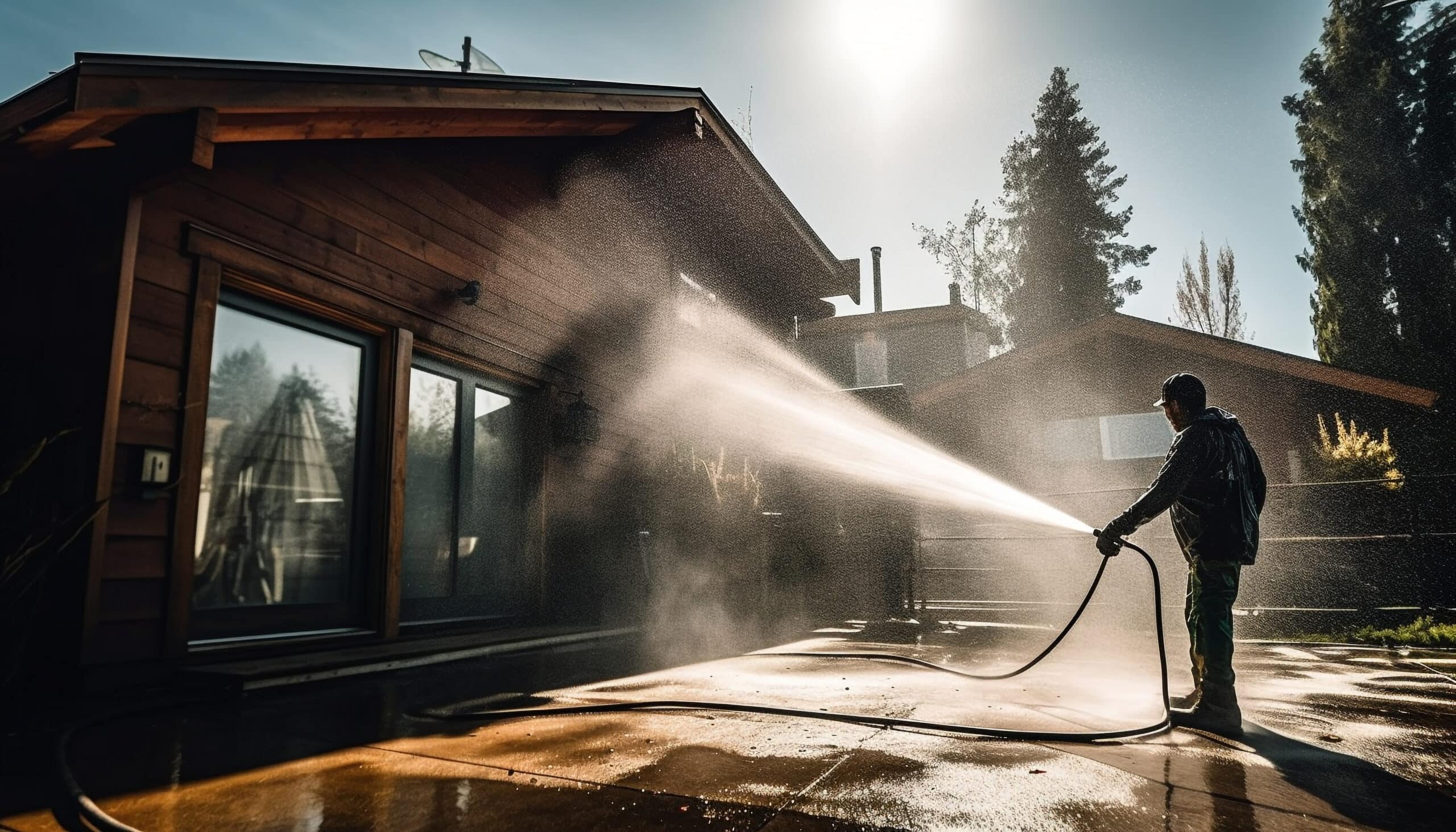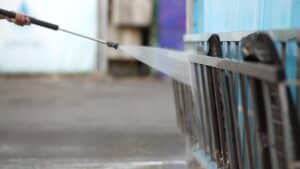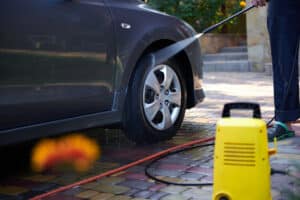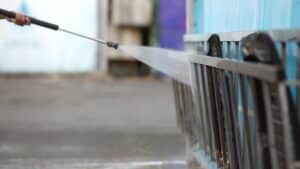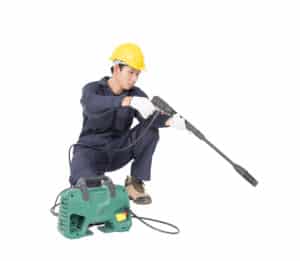How to Troubleshoot Common Issues with Your Gas Pressure Washer
Key Takeaways
- Low pressure is a common issue with gas pressure washers that can affect their effectiveness.
- To troubleshoot low pressure, check the water supply, inspect the water inlet filter, check for blockages, use the correct nozzle, adjust the unloader valve, and check for pump damage.
- In addition to low pressure, other common issues with gas pressure washers include engine starting problems, engine stopping while in use, engine not providing enough power, oil dripping from the engine, water in the oil, excessive noise, and oil leaking from the pump.
Gas pressure washers are powerful tools that can help you clean various surfaces efficiently. However, like any other equipment, they can encounter problems from time to time. If you’re facing issues with your gas pressure washer, such as low pressure or starting problems, it’s important to troubleshoot and resolve them to ensure optimal performance. In this article, we will discuss some common problems and their possible solutions.
Troubleshooting Low Pressure
Low pressure is a common issue that can impact the effectiveness of your gas pressure washer. Here are some steps you can take to troubleshoot and fix this problem:
- Check the Water Supply: One of the first things you should do is ensure that the water supply has enough pressure and flow for the pump’s requirements. Make sure the garden hose is unkinked and that there is full water pressure coming from the tap.
- Inspect the Water Inlet Filter: The water inlet filter is designed to prevent debris from entering the pump. Inspect it for any dirt or damage and clean or replace it if necessary.
- Check for Blockages: Examine the high pressure hose, spray gun, and nozzle for any blockages. Clean them thoroughly to remove any dirt or debris that may be affecting the pressure.
- Use the Correct Nozzle: Using the wrong nozzle can also result in low pressure. Ensure that you are using the appropriate nozzle for the desired water pressure.
- Adjust the Unloader Valve: The unloader valve regulates the pressure inside the pump. If it’s not adjusted correctly, it can affect the pressure output. Adjust the unloader valve to build more pressure.
- Check for Pump Damage: If none of the above steps resolve the low pressure issue, it’s possible that the pump itself is damaged and requires repair or replacement. In such cases, it’s best to consult the operating manual or contact the manufacturer for further assistance.
Common Problems and Solutions
In addition to low pressure, gas pressure washers can encounter various other issues. Here are some common problems and their possible solutions:
- Engine Will Not Start: If your pressure washer’s engine refuses to start, check if there is enough gas and if the choke is in the correct position. Make sure to connect the spark plug wire if it is disconnected.
- Engine Stops Running While in Use: The engine may stop running due to low oil levels or a dirty air filter. Check the oil level and fill if necessary. Clean or replace the air filter to ensure proper airflow.
- Engine Not Providing Enough Power: If the engine is not delivering sufficient power, clean or replace the air filter and adjust the engine RPM to the manufacturer’s specifications.
- Oil Dripping from the Engine: The presence of oil dripping from the engine indicates worn seals. In such cases, it’s best to replace the worn seals to prevent further damage.
- Water in the Oil: If the oil appears milky, it could indicate water contamination. This may be due to worn or broken pistons and seals. Repair the engine through warranty or replace the worn parts.
- Excessive Noise: Excessive noise can be attributed to a clogged water intake or insufficient oil levels. Check and clean or replace the water intake, and add oil to the engine and pump if necessary.
- Oil Leaking from the Pump: If you notice oil leaking from the pump, check and tighten any loose bolts or fittings. Replace damaged parts such as seals or pistons.
These are just a few of the common problems you may encounter with your gas pressure washer. Always consult the operating manual for specific troubleshooting instructions and safety guidelines.
Conclusion
Gas pressure washers can be valuable tools for cleaning a variety of surfaces. However, they can experience issues from time to time. By troubleshooting common problems such as low pressure and starting issues, you can ensure that your gas pressure washer operates at its best. Remember to follow the manufacturer’s guidelines and seek professional assistance when needed.
Related Websites:
FAQs:
Q: What are the potential causes for low pressure in a gas pressure washer?
Low pressure in a gas pressure washer can be caused by various factors such as a clogged nozzle, insufficient water supply, or a worn-out pump.
Q: How can I address low pressure issues in my gas pressure washer?
To address low pressure in a gas pressure washer, you can try cleaning or replacing the nozzle, ensuring proper water flow, checking for any hose kinks, and inspecting the pump for any damage or wear.
Q: What are the possible reasons for difficulty in starting a gas pressure washer?
Difficulty in starting a gas pressure washer can be attributed to factors like a clogged carburetor, ignition problems, or fuel supply issues.
Q: How can I troubleshoot engine starting problems in my gas pressure washer?
To troubleshoot engine starting problems in a gas pressure washer, you can clean or replace the carburetor, check the spark plug and ignition system, and ensure a proper fuel supply.
Q: What are the causes of water leaks in a gas pressure washer?
Water leaks in a gas pressure washer can be caused by damaged or worn-out hoses, loose connections, or faulty seals.
Q: How can I fix water leakage problems in my gas pressure washer?
To fix water leakage problems in a gas pressure washer, you can tighten loose connections, replace damaged hoses or seals, and ensure proper assembly of components.
Q: What are the signs of a faulty pump in a gas pressure washer?
Signs of a faulty pump in a gas pressure washer include reduced pressure output, unusual noises, and water leaks near the pump area.
Q: How can I address pump-related issues in my gas pressure washer?
To address pump-related issues in a gas pressure washer, you can check for any clogs, inspect and clean the valves, replace any damaged components, and ensure proper lubrication.
Q: What are the common problems that may arise with the spray gun of a gas pressure washer?
Common problems that may arise with the spray gun of a gas pressure washer include nozzle blockages, trigger issues, or leaks.
Q: How can I resolve spray gun issues in my gas pressure washer?
To resolve spray gun issues in a gas pressure washer, you can clean or replace the nozzle, check and repair the trigger mechanism, and inspect for any damaged or worn-out parts.
Q: Why is regular maintenance important for a gas pressure washer?
Regular maintenance is important for a gas pressure washer to prevent common issues, ensure optimal performance, and extend its overall lifespan.
Q: What is the recommended maintenance routine for a gas pressure washer?
The recommended maintenance routine for a gas pressure washer typically includes tasks like checking and replacing oil, inspecting and cleaning filters, lubricating moving parts, and storing it properly when not in use.

